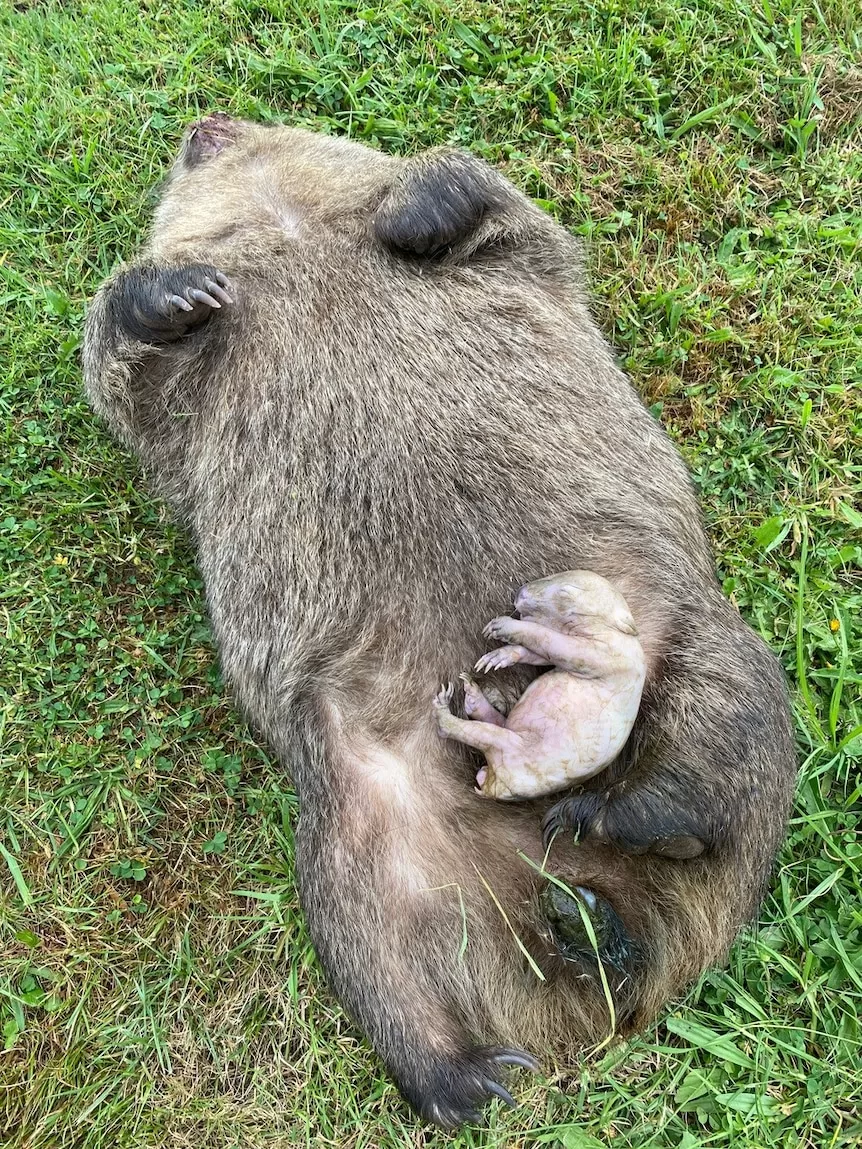- In short: Ten wombats and three joeys were killed by cars in 24 hours on the NSW south coast.
- Carers say the joeys could have been saved if drivers had stopped to check the mothers’ pouches
- What’s next? Carers say roadkill work is leaving them traumatised and are urging more care on the roads.
Wildlife rescuer Kerstin Schweth says a terrible 24 hours on the roads in southern NSW last week was among the worst she had seen in 20 years of volunteering.
WARNING: This article includes images that may be distressing to some readers.
“We are gobsmacked. We are frustrated and angry,” she said.
Ten wombats were killed in 24 hours in a small patch of the Illawarra region between Albion Park and Robertson last week.
Volunteer Rebecca Daley from wildlife rescue charity WIRES said they were shocked at the number of deaths.
“It’s not unusual for us to have animals killed on the road, but that was a really large number,” she said.
Three of the deaths were mothers with joeys in their pouches, captured in distressing images Ms Schweth shared to social media.
“They were perfectly viable for us to hand raise them,” she said.
She said they all died because they were left on the road by the drivers.
“The ignorance not to stop and check whether the animal is still alive or if it has a joey — what is this?” Ms Schweth said.
“If we don’t get the information then we can’t do anything and when we come up the next day, once people call us, we see the carnage, we see the damage, we see dead bodies.
“That is very upsetting because we could have done something.”
A simple fix
Ms Schweth is today caring for two tiny wombats pulled from their mothers’ pouches after a road crash over the weekend.
“They were alive,” she said.
“The driver did not stop and check, but they were found by a resident. One is 180 grams and one is 325 grams.”
The young wombats are called “pinkies” because they are so young that they are hairless.
Ms Schweth said they would have a better chance at survival if the driver had called in immediately after the crash, but even after several hours their odds were “fairly good”.
She urged drivers to take responsibility when they hit native animals.
“What I’d like them to do is stop the car somewhere it is safe and see whether the animal is still alive, or if it has a joey, is it in the pouch,” Ms Schweth said.
“Then I would like them to ring the wildlife groups.”
An ongoing impact
Finding animals dead or dying on the side of the road takes a mental toll for most volunteers, but sometimes it is more personal.
Ms Daley works with WIRES treating wombats for mange in the Illawarra.
One of the wombats who died last week was the first she had successfully treated for the disease over the course of several years.
She called her “Wendy”.
“I have difficulty talking about it,” Ms Daley said.
“Losing her has been quite a big shock and [had] a big impact on me because I’ve been taking care of her. I’ve kept her alive.”
She says dealing with roadkill is the most traumatic part of being a carer.
“If you’re driving through rural areas, or bushland, just slow down between dusk and dawn and watch for the animals,” Ms Daley said.
“You only lose a minute off your drive and [it will] let them get on with their lives.”
